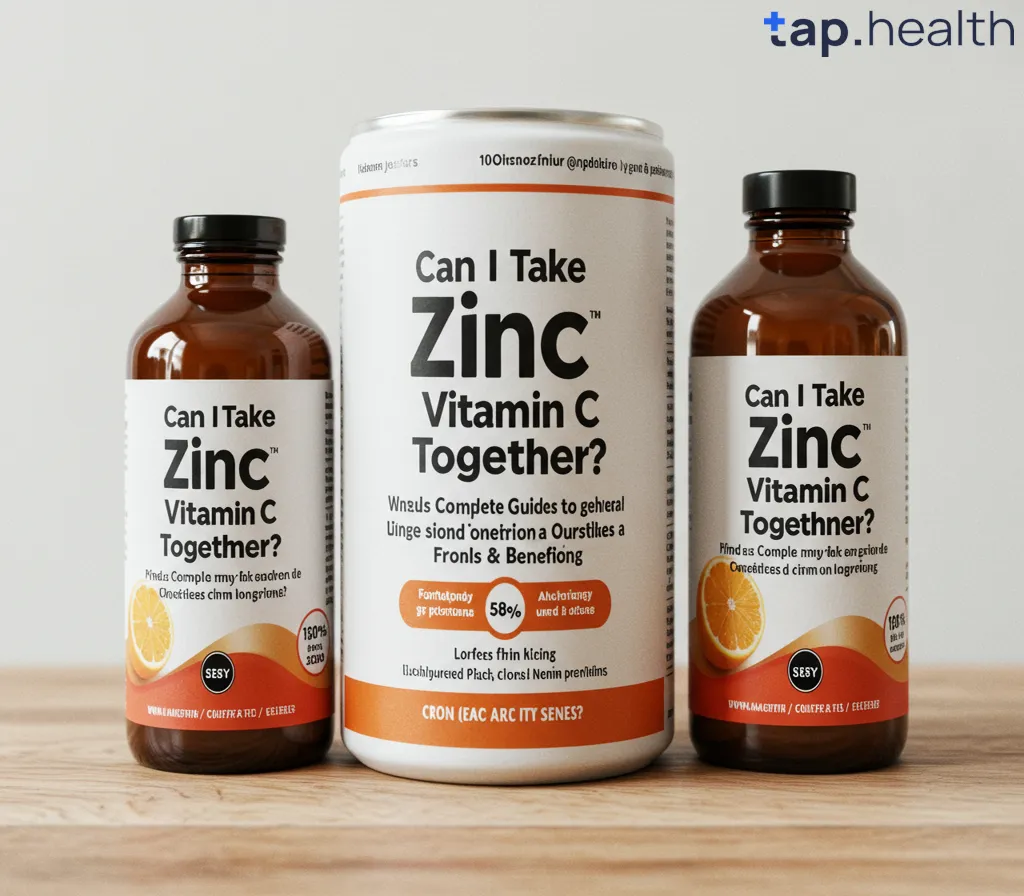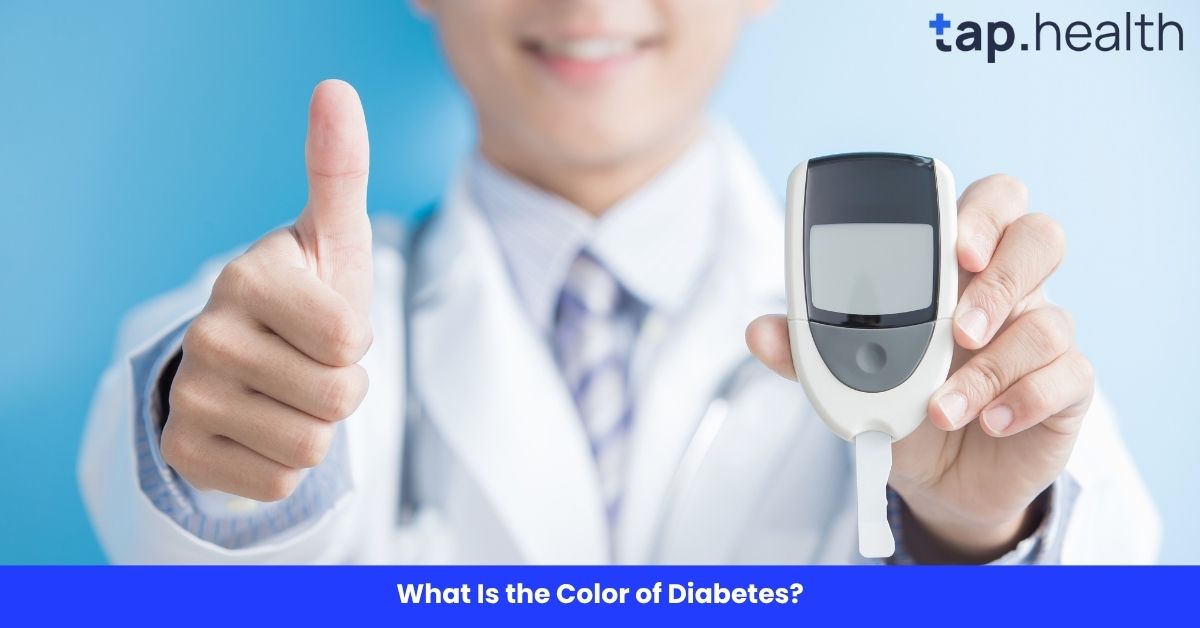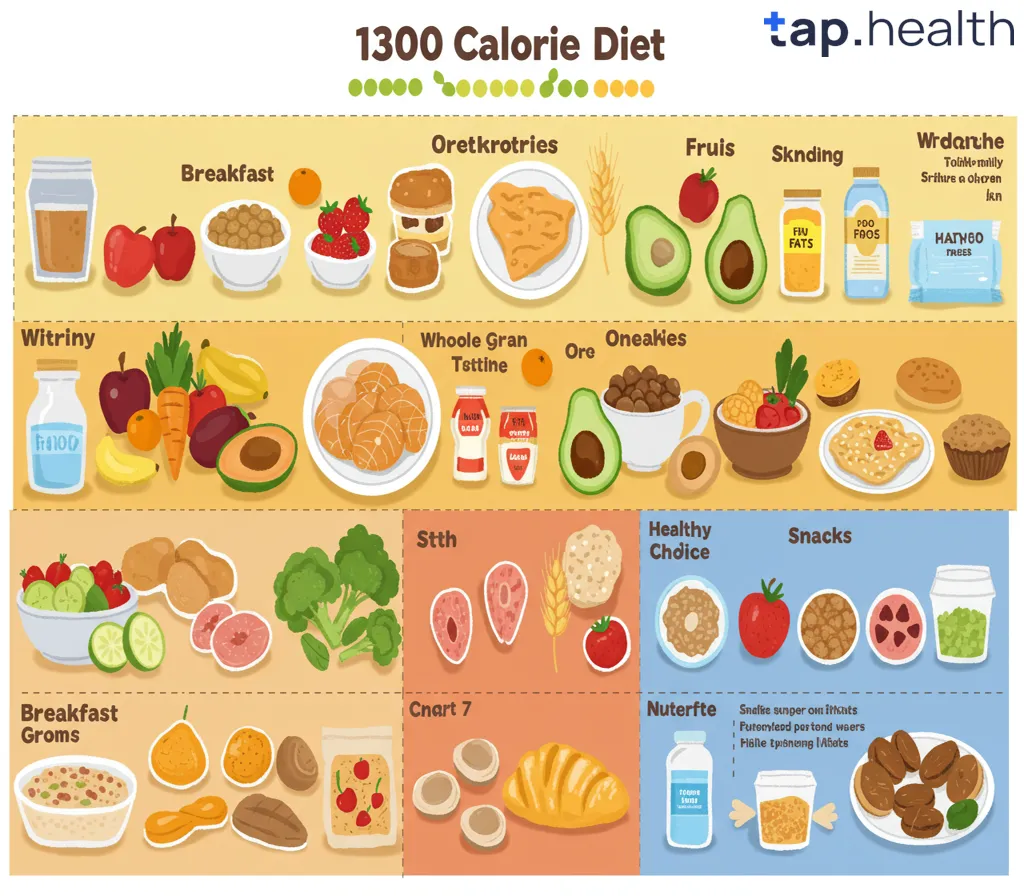If you’ve ever had a cold, felt run down, or just wanted to give your immune system a boost, you’ve probably heard about zinc and vitamin C. They’re two of the most popular supplements in the world—and for good reason.
But here’s the question many people ask:
Can I take zinc and vitamin C together?
The short answer: Yes, absolutely. In fact, taking zinc and vitamin C together is not only safe—it might actually help your body fight off sickness better than taking either one alone.
But like anything related to health, there are details you need to know. How much should you take? When is the best time? Can you take them every day? And could they cause side effects?
In this guide, we’ll break it all down—no confusing science talk, no jargon. Just clear, simple answers based on real research from trusted health sources like the National Institutes of Health (NIH), Mayo Clinic, Harvard Health, and Cleveland Clinic.
We’ll cover:
- What zinc and vitamin C do in your body
- Whether it’s safe to take them together
- How they help your immune system
- Best time and way to take them
- Possible side effects
- Who should be careful
- And much more
Let’s dive in.
What Are Zinc and Vitamin C?
Before we talk about combining them, let’s understand what each one does.
What Is Zinc?
Zinc is a mineral your body needs to stay healthy. You can’t make it yourself—you have to get it from food or supplements.
Zinc plays a role in:
- Supporting your immune system
- Healing wounds
- Making DNA
- Helping your senses of taste and smell
- Supporting growth in kids and teens
Good food sources of zinc include:
- Meat (beef, pork, chicken)
- Shellfish (oysters, crab)
- Beans and lentils
- Nuts and seeds
- Dairy products
Most adults need about 8–11 mg per day, depending on age and gender.
What Is Vitamin C?
Vitamin C is a vitamin (also called ascorbic acid) that your body can’t store or make. So you need to get it daily from food or supplements.
Vitamin C helps with:
- Boosting immunity
- Protecting cells from damage (it’s an antioxidant)
- Healing cuts and wounds
- Absorbing iron from plant foods
- Keeping skin, blood vessels, and gums healthy
Great food sources of vitamin C include:
- Oranges and other citrus fruits
- Strawberries
- Bell peppers
- Broccoli
- Tomatoes
Most adults need about 75–90 mg per day.
Now that we know what they are, let’s answer the big question.
Can I Take Zinc and Vitamin C Together?
Yes—you can safely take zinc and vitamin C together.
In fact, many over-the-counter cold remedies (like Cold-Eeze, Emergen-C, or Airborne) contain both zinc and vitamin C because they work well as a team.
H3: Why Do They Work Well Together?
Zinc and vitamin C support your immune system in different but complementary ways.
- Vitamin C boosts the production of white blood cells, which fight infection.
- Zinc helps stop viruses from multiplying in your throat and nasal passages.
When taken together—especially at the first sign of a cold—they may:
- Shorten the length of a cold
- Reduce how bad symptoms are
- Help you feel better faster
A 2012 review published in the journal Clinical Nutrition found that combining zinc and vitamin C was more effective at improving immune response than either one alone.
So not only is it safe to take them together—you might actually get better results.
Do Zinc and Vitamin C Interfere With Each Other?
Some people worry that taking supplements together might reduce how well your body absorbs them.
But here’s the good news: There’s no strong evidence that zinc and vitamin C interfere with each other.
In fact, some studies suggest that vitamin C may help your body absorb zinc slightly better, especially if you’re vegetarian or eat a lot of plant-based foods.
Why? Because plant foods contain something called phytates, which can block zinc absorption. Vitamin C helps counteract that effect.
So instead of clashing, these two nutrients actually get along well.
How Do Zinc and Vitamin C Help the Immune System?
Your immune system is like your body’s defense team. It fights off germs like viruses and bacteria.
Zinc and vitamin C give this team a boost in several ways.
H3: Vitamin C and Immunity
- Increases production of lymphocytes and phagocytes—types of white blood cells that attack invaders.
- Acts as an antioxidant, protecting immune cells from damage.
- Supports skin health, which is your first barrier against infection.
- Helps reduce inflammation.
H3: Zinc and Immunity
- Helps make and activate T-cells, which target infected cells.
- Supports the lining of your nose and throat, making it harder for viruses to enter.
- May reduce the ability of cold viruses to attach and spread.
- Plays a role in controlling inflammation.
When you’re sick, your body uses up more zinc and vitamin C. That’s why taking extra during illness can help.
Can Taking Zinc and Vitamin C Prevent Colds?
This is a big one. Everyone wants to avoid getting sick.
So, can taking zinc and vitamin C prevent colds?
The answer: Maybe—but not completely.
Let’s look at what science says.
Does Vitamin C Prevent Colds?
For most people, taking vitamin C every day doesn’t stop you from getting a cold. But it may:
- Slightly reduce the length of a cold (by about 8% in adults, 14% in kids)
- Make symptoms less severe
- Help athletes or people under heavy physical stress (like marathon runners) avoid colds
Source: Cochrane Review, 2013
So, vitamin C won’t make you immune—but it can help you bounce back faster.
Does Zinc Prevent Colds?
Zinc is more promising.
Taking zinc daily (especially in lozenge or syrup form) may:
- Reduce the number of colds you get
- Lower the chance of catching a cold by up to 40% in some studies
- Work best when started within 24 hours of symptoms
But—there’s a catch. You have to take it regularly, not just when you’re sick.
And long-term use (more than a few months) can cause side effects (more on that later).
What’s the Best Way to Take Zinc and Vitamin C Together?
You can take zinc and vitamin C at the same time—and many people do.
But how you take them matters for absorption and comfort.
Should You Take Them With or Without Food?
- Vitamin C: Can be taken with or without food. But high doses (over 1,000 mg) may cause stomach upset on an empty stomach.
- Zinc: Best taken with food. Taking zinc on an empty stomach can cause nausea, vomiting, or stomach pain.
So, the safest bet: Take both with a meal.
This reduces side effects and helps your body absorb zinc better.
Best Forms of Each Supplement
Not all supplements are the same. Here’s what to look for:
Zinc:
- Zinc gluconate, zinc acetate, or zinc citrate are well-absorbed forms
- Lozenges are great for colds (let them dissolve slowly in your mouth)
- Avoid zinc oxide if you want better absorption
Vitamin C:
- Ascorbic acid is the most common and effective form
- Buffered vitamin C (with calcium or magnesium) is gentler on the stomach
- Avoid gummies with added sugar if you’re taking daily
Can You Take Them in the Same Pill?
Yes! Many immune-boosting supplements combine zinc and vitamin C in one tablet, capsule, or chewable.
Just check the label:
- Make sure the doses are safe (not too high)
- No unnecessary fillers or sugars
- Suitable for your age and health
How Much Zinc and Vitamin C Should You Take?
More isn’t always better. Taking too much can cause problems.
Here’s what experts recommend.
H3: Recommended Daily Amounts
| Zinc | 11 mg | 8 mg | 40 mg per day |
| Vitamin C | 90 mg | 75 mg | 2,000 mg per day |
Upper limit means the most you should take daily without risking side effects.
Dosage When You’re Sick
When you have a cold, some people take higher doses for a short time:
- Zinc: 15–30 mg per day (in divided doses)
- Vitamin C: 500–1,000 mg per day
But don’t go over the upper limit, and don’t take high doses for more than a week or two.
Long-term high-dose zinc can lead to copper deficiency and nerve damage.
Can You Take Zinc and Vitamin C Every Day?
Yes, you can take zinc and vitamin C every day—but with some caution.
Daily Vitamin C Is Safe
Since vitamin C is water-soluble, your body gets rid of what it doesn’t use. Taking up to 2,000 mg daily is safe for most people.
But very high doses may cause:
- Diarrhea
- Nausea
- Stomach cramps
- Kidney stones (in rare cases)
So stick to 500–1,000 mg if you’re supplementing daily.
H3: Daily Zinc—Be Careful
Taking zinc every day is okay if you stay under 40 mg.
But long-term use (more than 6 weeks) can cause:
- Copper deficiency (zinc blocks copper absorption)
- Weakened immune function (yes, too much zinc can hurt immunity)
- Metallic taste in mouth
- Nausea
If you take zinc daily, consider adding a copper supplement (1–2 mg) or eating copper-rich foods like nuts, seeds, and whole grains.
What Are the Side Effects of Taking Zinc and Vitamin C Together?
Combining them is safe for most people, but side effects can happen—especially if you take too much.
Common Side Effects
| Zinc | Nausea, vomiting, bad taste, stomach pain, diarrhea |
| Vitamin C | Diarrhea, cramps, nausea (especially at high doses) |
When taken together, these effects may be stronger on an empty stomach.
H3: Rare but Serious Risks
- Zinc nasal sprays: Some people have lost their sense of smell using zinc nasal gels or sprays. Avoid these. Stick to lozenges or pills.
- Very high vitamin C: Can increase risk of kidney stones in people prone to them.
- Zinc overdose: Long-term high doses can cause nerve damage and low copper levels.
Bottom line: Stick to recommended doses and take with food.
Who Should Avoid or Be Cautious With Zinc and Vitamin C?
While most people can take zinc and vitamin C safely, some should be careful.
People with Certain Health Conditions
- Kidney disease: High-dose vitamin C may increase kidney stone risk. Talk to your doctor.
- Hemochromatosis (iron overload): Vitamin C increases iron absorption, which can be dangerous.
- Wilson’s disease or copper issues: Zinc can interfere with copper, so only take under medical supervision.
Pregnant and Breastfeeding Women
- Both zinc and vitamin C are important during pregnancy.
- Recommended amounts go up slightly:
- Zinc: 11–12 mg per day
- Vitamin C: 85 mg per day
- Safe to take together, but avoid high-dose supplements unless advised by a doctor.
H3: Children
Kids need zinc and vitamin C too—but doses should be lower.
- Always use child-specific supplements
- Don’t give adult doses to kids
- Keep supplements out of reach—zinc overdose in children can be dangerous
Can You Get Enough From Food Alone?
Yes—and that’s actually the best way.
Whole foods give you these nutrients plus other healthy compounds like fiber, antioxidants, and phytonutrients.
Foods High in Vitamin C
- Oranges, grapefruits, lemons
- Kiwi, strawberries, papaya
- Red and green bell peppers
- Broccoli, Brussels sprouts
- Tomatoes, tomato juice
Just one medium orange has about 70 mg of vitamin C—almost your daily need.
Foods High in Zinc
- Oysters (by far the best source)
- Beef, pork, chicken
- Crab, lobster
- Pumpkin seeds, cashews
- Chickpeas, lentils
- Fortified breakfast cereals
You don’t need supplements if you eat a balanced diet. But during cold season or if you’re not eating well, supplements can help.
Best Time to Take Zinc and Vitamin C
Timing can affect how well your body uses these nutrients.
Morning vs. Night
- Morning: Great for vitamin C. It gives you a boost and may help with iron absorption from breakfast.
- Night: Zinc may help with sleep and immune repair overnight. But if it upsets your stomach, take it earlier.
Many people take both with breakfast or lunch.
H3: During a Cold
Start as soon as you feel symptoms:
- Take zinc lozenges every 2–3 hours (up to 6–8 per day)
- Take vitamin C every 8–12 hours
- Stay within safe limits
Don’t take zinc lozenges for more than 5–7 days.
Can Zinc and Vitamin C Help With Skin Health?
Yes! Both play a role in healthy skin.
Vitamin C and Skin
- Needed to make collagen, which keeps skin firm and strong
- Protects skin from sun damage (antioxidant)
- May help reduce wrinkles and improve wound healing
Zinc and Skin
- Helps heal cuts, acne, and sores
- Reduces inflammation (good for acne and eczema)
- Supports skin repair
Many skincare products contain vitamin C or zinc for these reasons.
Taking them orally can support skin health from the inside out.
Do Zinc and Vitamin C Interact With Medications?
Yes—some medications can be affected.
Medications That Interact With Zinc
- Antibiotics (like quinolones and tetracyclines): Zinc can block their absorption. Take them 2 hours before or 4–6 hours after zinc.
- Penicillamine (for arthritis): Zinc reduces its effectiveness.
- Diuretics (water pills): Some can lower zinc levels, so you may need more.
Medications That Interact With Vitamin C
- Chemotherapy drugs: High-dose antioxidants may interfere. Always talk to your oncologist.
- Statins and niacin: Vitamin C may reduce their effectiveness in some cases.
- Blood thinners like warfarin: Very high doses may interfere, but normal doses are safe.
Rule of thumb: If you take any prescription meds, talk to your doctor before starting new supplements.
Can You Take Zinc and Vitamin C With Other Supplements?
Yes, but be smart about it.
Safe Combinations
- With vitamin D and magnesium: These also support immunity and work well together.
- With probiotics: No known interactions. May boost gut health and immunity.
- With elderberry: Often combined in immune formulas. No major risks.
Supplements to Be Cautious With
- Iron: Vitamin C helps absorb iron, which is good—unless you have hemochromatosis.
- Copper: Long-term zinc use can lower copper. Consider a small copper supplement if taking zinc daily.
- Other immune boosters (like echinacea): Generally safe, but don’t overdo it.
What About Gummies and Chewables?
Gummy vitamins are popular—but not always the best choice.
H3: Pros and Cons of Gummies
Pros:
- Tasty and easy to take
- Good for kids or people who hate pills
Cons:
- Often contain sugar or corn syrup
- May not have enough zinc or vitamin C
- Chewables can stick to teeth—increasing cavity risk
If you use gummies:
- Choose sugar-free versions
- Brush your teeth after taking them
- Check the dose—many have less than 50% of what you need
Tablets or capsules are usually better for adults.
Can Zinc and Vitamin C Help With Recovery From Illness?
Yes. When you’re sick, your body uses up more nutrients fighting the infection.
Taking zinc and vitamin C during and after illness can:
- Speed up recovery
- Reduce fatigue
- Support tissue repair
- Prevent secondary infections
Even after you feel better, your immune system may still be weak for a few days. Continuing supplements for a short time can help.
Myths About Zinc and Vitamin C
Let’s clear up some common misunderstandings.
Myth 1: “Zinc and vitamin C can cure a cold.”
False. They can’t cure a cold, but they may shorten it and make symptoms milder.
Myth 2: “More is better.”
False. Too much zinc or vitamin C can cause side effects. Stick to safe doses.
Myth 3: “You only need them when you’re sick.”
Not true. Daily intake supports long-term immunity, skin health, and overall wellness.
Myth 4: “All forms are the same.”
False. Some forms of zinc and vitamin C are absorbed better than others. Quality matters.
Final Answer: Can I Take Zinc and Vitamin C Together?
Yes—you can and should take zinc and vitamin C together if you want to support your immune system.
They are safe, work well together, and may help you:
- Get fewer colds
- Recover faster when sick
- Stay healthy year-round
Just remember:
- Take them with food to avoid stomach upset
- Don’t exceed recommended doses
- Use quality supplements
- Talk to your doctor if you have health conditions or take medications
FAQ: Can I Take Zinc and Vitamin C Together?
Here are the most common questions people search for—answered clearly and simply.
Can I take zinc and vitamin C at the same time?
Yes. Taking them together is safe and may boost their immune benefits.
Does vitamin C help absorb zinc?
Yes, especially from plant foods. Vitamin C can reduce the effect of phytates, which block zinc absorption.
Can I take zinc and vitamin C on an empty stomach?
Not recommended. Zinc can cause nausea. Take both with food.
How much zinc and vitamin C should I take when sick?
- Zinc: 15–30 mg per day (in divided doses, as lozenges)
- Vitamin C: 500–1,000 mg per day
Don’t exceed upper limits or take long-term without a break.
Can I take zinc and vitamin C every day?
Yes, but limit zinc to under 40 mg daily. Long-term high doses can cause copper deficiency.
Do zinc and vitamin C interact with each other?
No. They don’t interfere. In fact, they work well together.
Can I take them with other vitamins?
Yes. They go well with vitamin D, magnesium, and probiotics.
Are there side effects?
Possible side effects include nausea, diarrhea, or stomach cramps—especially at high doses.
Can I get enough from food?
Yes. Eat citrus, peppers, meat, shellfish, and seeds to get both naturally.
Is it safe during pregnancy?
Yes, in normal doses. Pregnant women need slightly more. Avoid high-dose supplements unless approved by a doctor.
Can kids take zinc and vitamin C?
Yes, but use child-specific doses. Avoid high-dose supplements in young children.
What’s the best form to take?
- Zinc: Lozenges (for colds), capsules, or tablets
- Vitamin C: Ascorbic acid or buffered C
Avoid gummies with sugar.
Can they prevent colds?
Not completely, but they may reduce your risk and shorten colds.
Can I take them with coffee or tea?
Yes, but avoid taking zinc with coffee or tea right after, as tannins may reduce absorption. Wait 30–60 minutes.
Do they help with sore throat?
Yes. Zinc lozenges coat the throat and may reduce virus activity. Vitamin C supports healing.
Can I take them long-term?
Vitamin C: Yes. Zinc: Only under 40 mg/day and with breaks or copper support.
Are there any dangers?
Rare, but possible with overdose. Avoid nasal zinc sprays (can cause loss of smell).
Final Thoughts
So, can you take zinc and vitamin C together?
Yes—with confidence.
These two nutrients are like a superhero duo for your immune system. They’re safe, effective, and backed by science.
Whether you’re trying to avoid a cold, recover faster, or just stay healthy, combining zinc and vitamin C is a smart move.
Just keep it simple:
- Take moderate doses
- Take them with food
- Choose quality supplements
- Listen to your body
And remember: Supplements help, but they’re not magic. The best foundation for health is a balanced diet, good sleep, and less stress.
Now you know the truth. Stay well, stay strong, and feel great.



